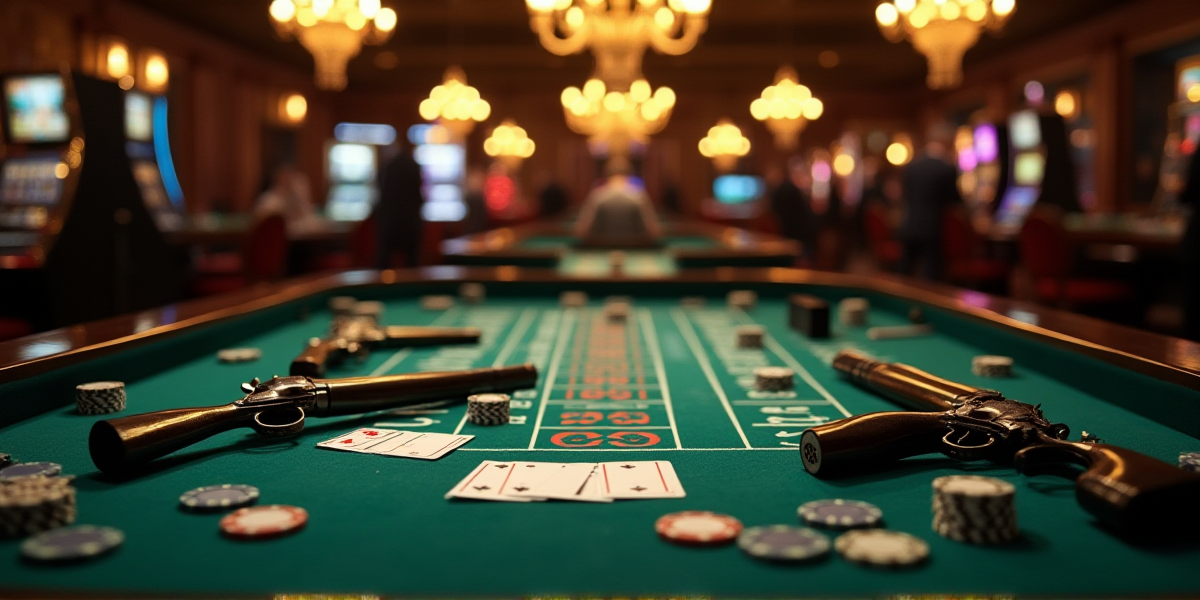Understanding the Risks of Russian Roulette Game Addiction
Russian Roulette game has taken the world by storm with its thrill and uncertainty, captivating millions of players worldwide. Despite its popularity, it's essential to understand the risks involved, as addiction can lead to severe consequences that can devastate lives. This article delves into the dangers of Russian Roulette game addiction, its impact on mental health, and provides expert advice on recognizing the signs and overcoming the addiction.
What is Russian Roulette Game Addiction?
Russian Roulette game addiction is a type of behavioral addiction characterized by a compulsive need to engage in the game despite its negative consequences. The psychological aspects of game addiction stem from the brain's reward system, releasing feel-good chemicals like dopamine, which reinforces the behavior. Popular platforms like bet9 and old bet9 old mobile contribute to the game's widespread appeal, making it easily accessible and fueling the addiction.
The Allure of Uncertainty: Why Players Get Hooked
The game's unpredictability creates a sense of excitement, and the urge to win big drives players to continue betting. This vicious cycle of uncertainty and anticipation can lead to a psychological dependence on the game, making it challenging for players to stop. As the addiction takes hold, players may find themselves chasing losses, lying to conceal their behavior, and neglecting responsibilities.

The Risks of Russian Roulette Game Addiction
Russian Roulette game addiction poses significant risks to an individual's financial, emotional, and social well-being.
Financial Risks
The consequences of addiction can be financially crippling, leading to debt, bankruptcy, and financial instability. Players may exhaust their savings, borrow money, or even resort to illegal means to fund their habit. The financial strain can have a ripple effect, impacting relationships and overall quality of life.
Emotional Risks
The emotional toll of Russian Roulette game addiction is equally devastating, often manifesting as anxiety, depression, and strained relationships. The pressure to recoup losses can lead to feelings of desperation, with some players uttering the haunting phrase no way out the roulette as they feel trapped in their situation.

No Way Out: The Devastating Consequences of Russian Roulette Game Addiction
The emotional burden of addiction can be overwhelming, causing players to withdraw from social circles, leading to isolation and loneliness. The decline in mental health can further exacerbate the addiction, creating a vicious cycle that's challenging to break.
Signs of Russian Roulette Game Addiction
Recognizing the signs of addiction is crucial to seeking help.
Common Signs of Addiction
- Neglecting responsibilities, such as work, education, or personal hygiene
- Lying to conceal the extent of their gaming habits
- Isolation from friends and family to continue playing
- Increasing bets to recoup losses or experience the same thrill
Behavioral Patterns
- Chasing losses, hoping to break even or win big
- Denial of the addiction, despite mounting evidence
- Irritability and defensiveness when confronted about their behavior
Recognizing the Warning Signs of Russian Roulette Game Addiction
It's essential to acknowledge these signs and seek help before the situation spirals out of control.
Overcoming Russian Roulette Game Addiction
Breaking free from the cycle of addiction requires a comprehensive approach, involving professional help, support groups, and coping strategies.
Seeking Help
- Consulting a therapist or counselor to address underlying issues
- Joining support groups to connect with others who face similar struggles
- Participating in self-help programs to develop coping mechanisms
Strategies for Recovery
- Avoiding triggers, such as deleting gaming apps or avoiding betting shops
- Finding alternative hobbies to fill the void
- Developing a support network to stay accountable
Breaking Free from the Cycle of Addiction: A Path to Recovery
With the right guidance and mindset, it's possible to overcome Russian Roulette game addiction. By acknowledging the risks and seeking help, individuals can regain control of their lives and rediscover a sense of purpose.
Conclusion
Russian Roulette game addiction poses significant risks to an individual's financial, emotional, and social well-being. It's crucial to recognize the signs of addiction and seek help before it's too late. By promoting responsible gaming practices and seeking support, we can mitigate the dangers associated with this addictive game. Remember, addiction is not a sign of weakness, but seeking help is a sign of strength.

